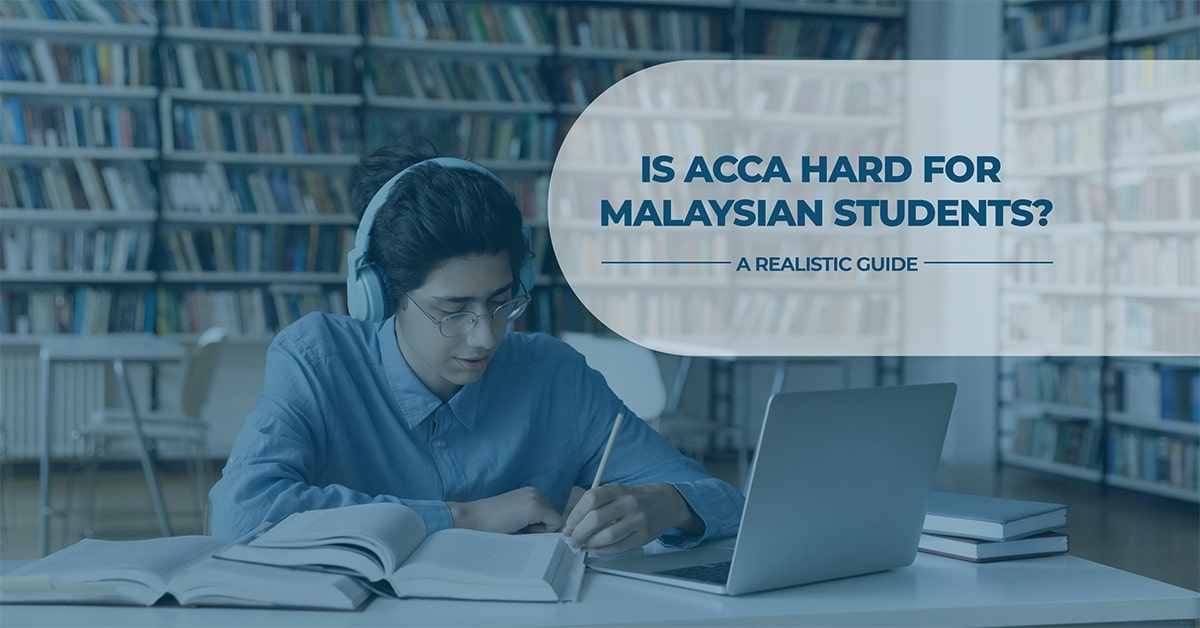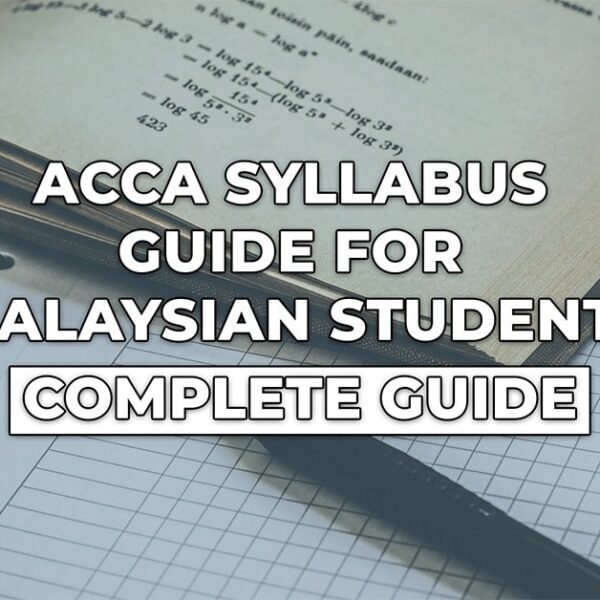The Association of Chartered Certified Accountants (ACCA) qualification is globally respected for its rigour and comprehensive curriculum. Prospective students in Malaysia often ask: “Is ACCA hard?” This article provides a balanced assessment of the qualification’s difficulty, helping you set realistic expectations and prepare effectively.
The Challenge in Context
ACCA is undeniably challenging, but this should be understood in proper context:
- It’s a professional qualification equivalent to a postgraduate degree
- It develops both technical knowledge and practical application skills
- It’s designed to create workplace-ready accounting professionals
- Global pass rates typically range from 30-50% depending on the paper
However, “difficulty” is relative and highly influenced by individual factors and preparation approaches.
Breaking Down the Difficulty Factors
Technical Complexity
The ACCA syllabus progresses from foundational to advanced concepts:
Applied Knowledge Level
- Generally accessible for students with basic accounting understanding
- Introduces fundamental principles using straightforward scenarios
- Pass rates typically higher at this level
Applied Skills Level
- Significantly increases in technical complexity
- Requires application of knowledge to practical scenarios
- Introduces more professional judgment and analysis
Strategic Professional Level
- Demands integrated knowledge across multiple subject areas
- Tests high-level analytical and strategic thinking
- Requires substantial professional judgment and ethical awareness
Time Commitment
ACCA requires significant study investment:
- Each paper typically requires 150-200 study hours
- Full qualification generally takes 3-4 years alongside work
- Balancing study with employment creates time management challenges
Professional Integration
Beyond technical knowledge, ACCA tests workplace readiness:
- Application of theory to real business scenarios
- Professional ethics and judgment
- Communication of complex financial information
Factors Affecting Individual Experience
The perceived difficulty of ACCA varies based on:
Educational Background
- Accounting graduates typically find early papers more manageable
- Non-accounting backgrounds may require additional foundational work
- Previous exposure to business concepts provides helpful context
Learning Style
- Conceptual learners may thrive in the analytical aspects
- Practical learners might excel in application-based questions
- Adaptive study approaches yield better results than rote memorization
Work Experience
- Relevant workplace exposure reinforces theoretical concepts
- Practical experience provides context for academic learning
- The Practical Experience Requirement (PER) complements exam knowledge
Study Approach
- Strategic study planning versus last-minute cramming
- Active versus passive learning techniques
- Utilization of available resources and support
Specific Challenges for Malaysian Students
Students in Malaysia may face particular considerations:
- Adapting to the UK-based examination approach and terminology
- Balancing cultural learning styles with ACCA’s analytical requirements
- Navigating differences between Malaysian tax and corporate law and global standards
- English language proficiency for non-native speakers
Success Strategies
While challenging, ACCA is achievable with effective preparation:
Structured Study Plan
- Create a realistic timetable allowing adequate time per topic
- Balance theory learning with question practice
- Schedule regular revision and self-assessment
Question Practice Emphasis
- Prioritize past exam questions and mock exams
- Focus on understanding examiner expectations
- Practice time management during question attempts
Support Networks
- Join study groups for collaborative learning
- Seek mentor guidance from qualified professionals
- Utilize tutor support for challenging concepts
Holistic Preparation
- Develop exam technique alongside knowledge
- Build professional skills throughout your journey
- Maintain physical and mental wellbeing
Conclusion
Is ACCA hard? Yes, it presents a significant challenge but that’s precisely why it’s valued by employers worldwide. The difficulty of ACCA reflects its comprehensive preparation of professionals for complex financial roles.
For Malaysian students considering this qualification, understand that ACCA’s challenge is designed to be surmountable with proper preparation, consistent effort, and strategic study approaches. The struggle itself develops the resilience, critical thinking, and professional judgment that accounting careers demand.
Rather than being deterred by ACCA’s reputation for difficulty, view it as evidence of the qualification’s value. Thousands of Malaysian accountants have successfully navigated this journey before you, demonstrating that with determination and effective study strategies, you too can join their ranks as a qualified accounting professional.








